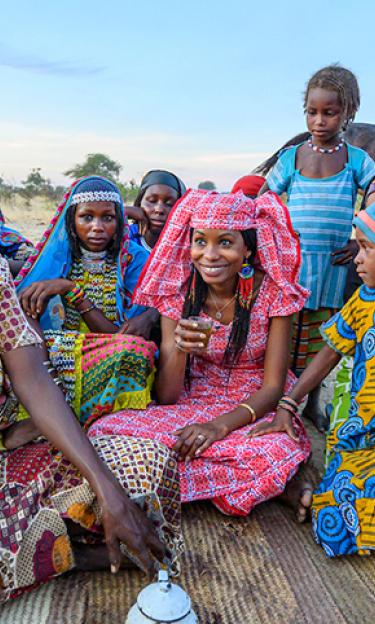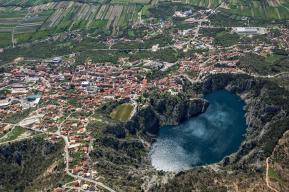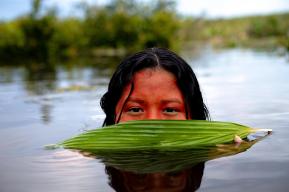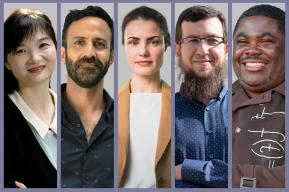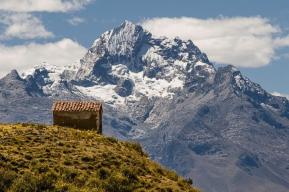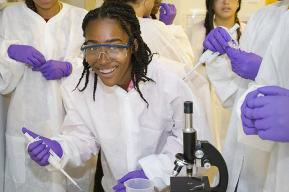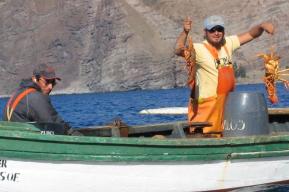新闻
疫情威胁活态遗产,乍得湖区妇女做出回应
近日,易卜拉辛与教科文组织文化部门活态遗产小组对话,介绍了她所在的社区如何应对新冠肺炎疫情及其对社区生活方式的影响,以及他们在自然环境和气候变化方面的知识和文化实践。
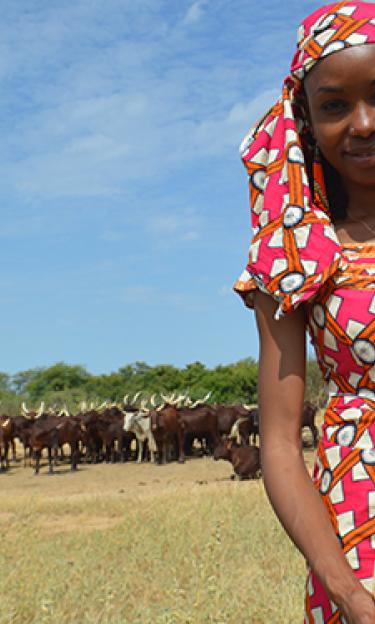
How is the coronavirus pandemic affecting your community and its living heritage?
I am very scared for my community because we’re mainly pastoralists and we depend on the seasons. When it is the dry season, we migrate to other regions and sometimes to other countries – actually most of the time – then we come back to our region or to our country. So, with the lockdown of frontiers and regions, a lot of cattle will be stuck and not able to cross the border. While the ecosystem of the Sahel is very fragile, you can’t manage it, it will be very bad... all the cattle will die, communities will fight among themselves to access the resources, there will not be enough water to drink. These are really the big consequences that I am scared of. We can’t control the season, just as we can’t control the coronavirus. We can’t just say that now we will stop the rainy season until this pandemic is finished so we can produce the pasture or produce the water.
Another consequence is that people do not have access to clean water to drink so they can’t access clean water to wash their hands. You can’t ask them to use soap every four hours, it’s completely impossible. And while they do not have access to the market to exchange their products, food security is a big concern; it is a big consequence and it will damage the very fragile people who are there.
There is also a lack of information on the pandemic for the community. All the information given in town, is given through social media, TV, radio and in the major languages: Arabic and French. But people do not always speak Arabic or French, so they can’t get access to this information. They do not know what to do, they do not know what is happening, so they can’t avoid the sickness.
How can culture and heritage be a source of resilience during such a crisis?
People are turning to their traditions and traditional medicine. We always use our traditional medicine to heal ourselves. For us in the community, if you have a fever, or if you have a headache there are some plants that you can use. We can’t maybe heal COVID-19, but people turn a lot to traditional medicine to heal the symptoms that they have in their daily lives. While they can’t go to the hospital because everything is in lockdown, they protect and turn to the traditional knowledge that they do have. I found it very interesting because even the modern medicine is based on plants in the Earth and this can maybe also help people to protect the environment they are living in. They are doing this a lot in the community and hopefully those people that have that knowledge can share it with others and it can be one of the solutions.
Another example, when I was talking to one community chief, is about supporting each other when old people need more support. So, when people have food, they need to take it to the more vulnerable. That’s the wonderful culture of the community: you can’t eat alone, if you have food and someone does not, you have to decide to prioritise the kids first, then the old people. This culture of sharing is so useful, even before COVID-19, and now people are coming back to this kind of culture.
Can you see parallels between the current pandemic and other contemporary crises we now face, such as climate change?
Climate change and COVID-19 have something in common: women leadership is key. Because women fight a lot: in my community they fight climate change and they’re innovators. They know how to share all the resources, what to protect, how to do it. Now, during the COVID-19 pandemic, even in developed countries, when you go to the hospital, the nurses, most of them are women. The women are the ones who work to care for others, as cooks, teachers. They are innovators in developed countries and in communities, and that’s a positive thing. If we can turn our leadership to women, then I think we can save the world. When you turn to the communities and to the general people, women are living in harmony with nature. They are not only protecting our environment but protecting our health.
The health crisis has also made us realize how much our health depends on the environment. The food we eat around the world – in developed or developing countries – relies on sharing natural resources. For example, the borders were closed, but food shipping was still allowed as we found that we are not so self-sufficient, but that we depend on each other’s environment. So, environmental protection is becoming more evident for everybody.
There are a lot of lessons learnt that we could take from the COVID-19 pandemic. Hope and solidarity, human values can help us to transform our world in a positive way -- and women leaders of course!
Do you have a message for other living heritage stakeholders and communities about the future after the pandemic?
Looking forward, I think the crisis has made us value our humanity and give us hope. We understand the need to live all together and the fact that we rely on each other. Living in solidarity, harmony, sharing within families and across communities. This protects our health and also the environment.
If the world is smart, we can learn from the COVID-19 pandemic. Governments were able to mobilize billions and billions in a month around the world. So, if they inject that money in the right economy, using for example the SDGs, that can help to recover the climate. If we compare the COVID-19 pandemic and the climate, we will see that they both increase food insecurity, vulnerabilities, lack of adaptation, and neither of them recognize frontiers. We can build a big leadership and say hey guys if we managed to respond to COVID-19, we can also respond to climate change and if we want to improve our health, we must protect the environment.
Conversation has been edited for length and clarity.


